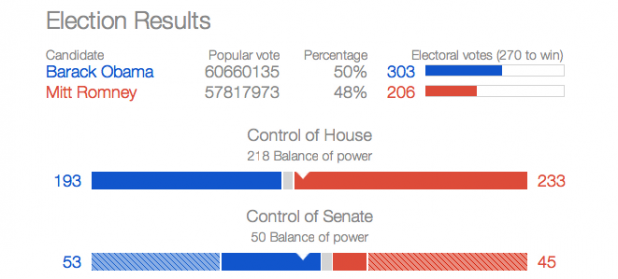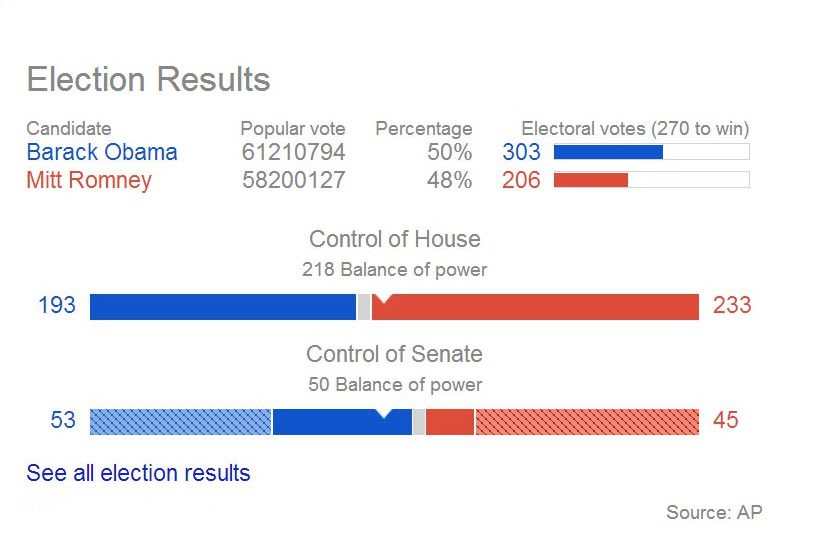 This past Tuesday the standard greeting in the Northeast switched from, “Do you have power?” to, “Did you vote yet?” There was an expectation among most community members that people would be voting, whether or not our lights were back on.
This past Tuesday the standard greeting in the Northeast switched from, “Do you have power?” to, “Did you vote yet?” There was an expectation among most community members that people would be voting, whether or not our lights were back on.
Participating in the popular vote is one of our foremost duties as American citizens, along with getting out of jury duty. Over the years our gedolim (revered rabbis of the generation) have made a point of encouraging Jews to vote. Chassidic communities have been known to bus their constituents together to polling sites and vote in a resolute bloc at the rebbe’s directive.
Yet our tradition teaches that lev melech b’yad Hashem, the heart of a king is in G-d’s hands. We all know (even if we don’t always act perfectly in accordance with this knowledge) that G-d is running the show, and that the good or evil that befalls the Jewish nation depends on how we are behaving and whether we are abiding by G-d’s will–not on how discussions are going in Congress or in the Iranian parliament.
Fundamentally, Jews recognize that if Iran goes nuclear and threatens our safety, it’s not because too many Midwesterners voted for Obama or for Romney. Rather, it’s because of our own actions and how they measure up in G-d’s book.
That doesn’t mean that voting is not necessary; it just means that it is not sufficient. It is one of many ways that we affect the world around us, and therefore we are responsible for what we do with that ability. We are responsible for a certain amount of hishtadlut, of this-worldly efforts. That amount is directly related to what we have control over. We have control over which name we check off on the ballot, but not who wins, or what the winner goes on to do; therefore we are responsible for voting, but not for anything beyond that. That means recognizing that our power is limited when it comes to such things as managing the most powerful country in the free world.
Rabbi Noach Orlowek, shlit”a, teaches it like this: “You do the best you can – and then you stop.” Sometimes, we try to do the best we can’t. We forget to stop. We spend needless hours worrying about who will win and lamenting how he will run our country, our lives and our ability to ever be happy again straight into the ground—forgetting that while the president may control important pieces in our lives, he doesn’t control the essence of our lives: aligning ourselves with the Torah and G-d.
Even if the victory of one candidate or another affects our pocketbooks, or our healthcare, or our civil liberties, it will have little effect on our ultimate purpose, which is the fulfillment of G-d’s will. That exists within a framework that the president might be responsible for, but is not bound by it. The results of the election are only important insofar as what we do with them.
Our share in the next Next World won’t be based on whether we had access to healthcare, but on whether we took care of our health. It won’t depend on how much money we were able to bring in, but on how much of our money we gave out. If you are burdened with more taxes or insurance costs because of the way the election turned out, and therefore can’t afford to give as much charity as before, you won’t be penalized for that; G-d takes into account our actions in light of our circumstances most precisely.
We don’t get docked any heavenly points for lacks that beset us due to governmental policy, or to natural disaster, or to anything else outside our sphere of influence; only that which we can affect are we expected to.
Is voting important? It sure is. It’s part of our responsibility as citizens of the United States and of G-d’s world. But far more important than going to the ballots is what you do when you get home. Are you using your assets and your skills to help others, to improve the world, and to sanctify G-d’s name in ways that only you are able? Are you doing the best you can within the limitations of your circumstances? If so, then you are not only acting as a citizen of this world, you are acting as a citizen of the Next World – a ben olam haba – as well.
Rabbi Raffi Bilek, LCSW-C, is a counselor and speaker in Baltimore, Maryland serving clients all over the globe. Find him online at www.frumcounselor.com or www.BaltimoreTherapyCenter.com.
The words of this author reflect his/her own opinions and do not necessarily represent the official position of the Orthodox Union.
